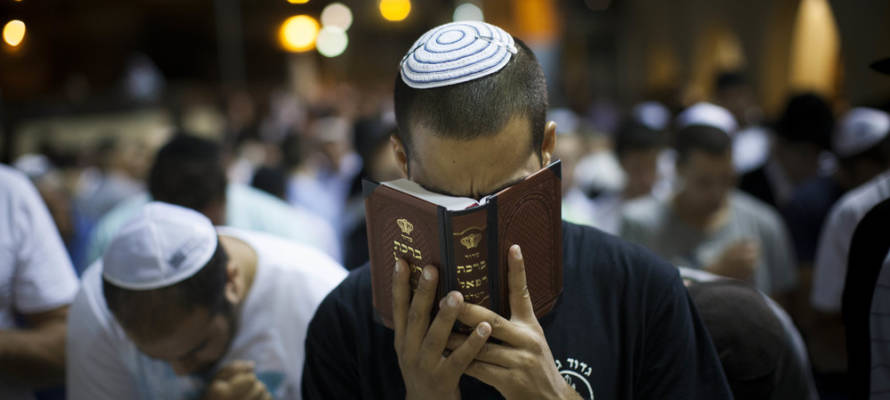The holy day of Yom Kippur – the Day of Atonement – is soon upon us. According to Jewish tradition, the fate of all mankind is sealed for the coming year.
By: Rabbi Ari Enkin, Rabbinic Director, United with Israel
Observant Jews spend the majority of Yom Kippur’s 25 hours in the synagogue praying. We confess our sins and pray for a good year.
That being said, it’s ultimately a happy day. It is the day that the Creator of the world forgives us for our sins, as the Torah says, “For on that day He will make an atonement for you, to cleanse you, that you may be clean from all your sins before God.”
The great Chassidic master, Rabbi Menachem Mendel of Kotzk, explained the significance of Yom Kippur is a different way. On one Yom Kippur eve, Rabbi Menachem Mendel made his way to his synagogue in preparation for the start of Yom Kippur and the hallowed Kol Nidrei prayers. Everyone was there dressed in white and wearing their prayer shawls (something never done at night, only on Yom Kippur).
Hundreds of his followers were ready to usher in the holy day with their saintly rabbi. Even before the service formally began, everyone was already engaged in their own prayers, or they were reciting Psalms, or they were studying Torah. Not a second is wasted on this holy day.
However, the Rabbi suddenly put an end to all of it. He interrupted the serene scene with an announcement:
Do not rely upon the power of Yom Kippur for forgiveness! Each and every person in this room must realize that he has to work upon himself to merit forgiveness. The Torah says “For on that day He will make an atonement for you, to cleanse you, that you may be clean from all your sins before G-d.”
While it is true that Yom Kippur has the power to atone for all our sins, however, do not forget the end of the verse. ‘‘For you, to cleanse yourselves. . ..” The Torah is telling us that although we will indeed be forgiven for our sins, we must nevertheless work on cleansing ourselves.
We must not rely on the power of Yom Kippur; we must also tap into the power in ourselves. It must be a joint effort.
And indeed it is. We do our part. We fast, we pray, we give up on all materialistic desires. We take control and do our part.
I would like to suggest that we take this idea into the rest of the year, as well. Continue to do your part long after Yom Kippur is over. Attend your synagogue or place of worship. Read the Torah. Begin to slowly make the effort, to make the change. Our sages tell us that if we would just let God into our lives a tiny bit, He will welcome us without bounds.
May we be successful in our mission and duty on Yom Kippur, and may we have the inspiration to continue with it throughout the year.

